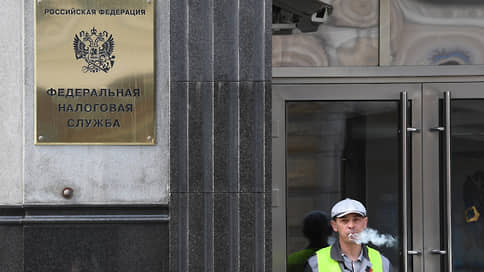Percentage of tax liability – Kommersant
[ad_1]

The dispute between the business and tax inspectorates, which refused to pay interest on the amount of overpaid and then returned property tax, was submitted to the Supreme Court of the Russian Federation (SC). The lower courts supported the Federal Tax Service, since the enterprises themselves voluntarily paid in excess of what was necessary, focusing on regional acts, which were subsequently canceled, for which the tax authorities are not responsible. But the companies succeeded in transferring cases to the Economic Board of the Armed Forces, believing that the refusal to collect interest on overpayments violates their right to compensation for harm, and also creates a bias in private and public interests. Lawyers are divided.
In June, the Supreme Court will consider two cases on the possibility of collecting interest from the tax authorities on tax overpayments that arose due to mistakes by regional authorities. Krasny Dom LLC and Pantan Firm LLC paid property tax in 2016–2020 based on the cadastral value of their buildings in Moscow. The real estate tax of organizations is calculated from the cadastral value, if the objects are included in the corresponding list by the regional authorities. Those buildings that are not included in the list are taxed at the average annual cost, which is usually several times less than the cadastral one.
Subsequently, the “Red House” and “Pantan” challenged the inclusion of their buildings in the list of objects taxed at the cadastral value, and the Moscow City Court invalidated the decisions of the capital’s mayor’s office in this part. On this basis, the companies filed amended declarations, asking them to return the overpaid amount of tax to them. The tax authorities returned a total of about 33 million rubles, but refused to pay interest on them (about 4.4 million rubles).
An attempt by taxpayers to collect interest in arbitration courts did not bring success.
The courts dismissed the claims, deciding that the tax authorities were not responsible, since they did not forcibly collect tax from the companies and they “independently fulfilled their tax obligation and calculated the amount of tax.”
In addition, the overpayment arose not because of the actions of the tax authority, but “due to the execution of the instructions of the government’s regulatory act,” which was later recognized as invalid.
“Red House” and “Pantan” filed complaints with the Supreme Court, claiming a violation of their rights to “state compensation for damage caused by illegal actions” of the authorities. According to the applicants, the overpaid taxes that they paid “in the absence of legal grounds” should be qualified as “overcharged”, since if they did not pay the tax voluntarily, “coercive measures would be applied to them”.
They insist that those who voluntarily paid the tax under an illegal act of the authority “cannot be placed in worse conditions than the subject from which taxes were forcibly collected” (the latter has the right to receive interest). A different approach is contrary to the “principle of a fair balance of private and public interests, which implies mutual responsibility of the state and citizens.” For these reasons, both cases were transferred to the Economic Board of the Armed Forces, the consideration is scheduled for June 7.
These cases raise an important question, notes Alina Makarova, lawyer at BGP Litigation’s tax consulting and tax disputes practice: “Is it fair to put a law-abiding entity that voluntarily paid taxes in worse conditions than an entity from which they were forcibly collected?” According to MEF Legal partner Alexander Erasov, the practice “did not support taxpayers in such situations” before, since “there was no fact of excessive tax collection”, since they were paid voluntarily.
Difficulties arise due to the existence of two concepts in the Tax Code – “overpaid” and “overcharged tax”, which are interpreted by the courts in different ways, explains Alina Makarova.
According to her, “neither the law nor practice clearly defines them,” which leads to “years of disputes with the tax authorities.” Now the Sun can put an end to this issue.
Alexei Artyukh, a partner at the Taxology law firm, clarifies that here the taxpayer “is completely dependent on the actions of the state,” which “approves the list of objects taxed at the cadastral value, and itself too.”
Thus, the question of the possibility of collecting interest referred to the Supreme Court concerns cases “when the excessive payment of tax arose as a result of essentially illegal actions of the state, and not necessarily in the person of the tax authorities themselves,” explains Alexey Artyukh.
For example, if the traffic police authorities unlawfully refuse to deregister a car, which is why the transport tax is overpaid.
At the same time, lawyers themselves express different opinions. Mr. Erasov finds the collection of interest in the current situation “fair”, since taxes in an overestimated amount were paid by companies “not on their own initiative, but in connection with the actions of the state, which were subsequently recognized as illegal.” Aleksey Artyukh believes that the decisions of the Supreme Court on these cases can become “a small revolution in tax and in general in public relations.” In fact, he explains, it proposes “a certain simplification of the recovery of losses and the unification of their size”: instead of filing a claim for compensation for losses against a government agency that has committed illegal actions, you can recover interest from the tax authorities on the amount of the overpayment.
Ms. Makarova, on the contrary, considers it justified to collect interest only if the funds were transferred to the budget on the basis of the decision of the tax inspectorate, considering it superfluous to shift “responsibility for the taxpayer’s conscientious error or illegal acts of other state bodies” to the tax authorities.
[ad_2]
Source link






